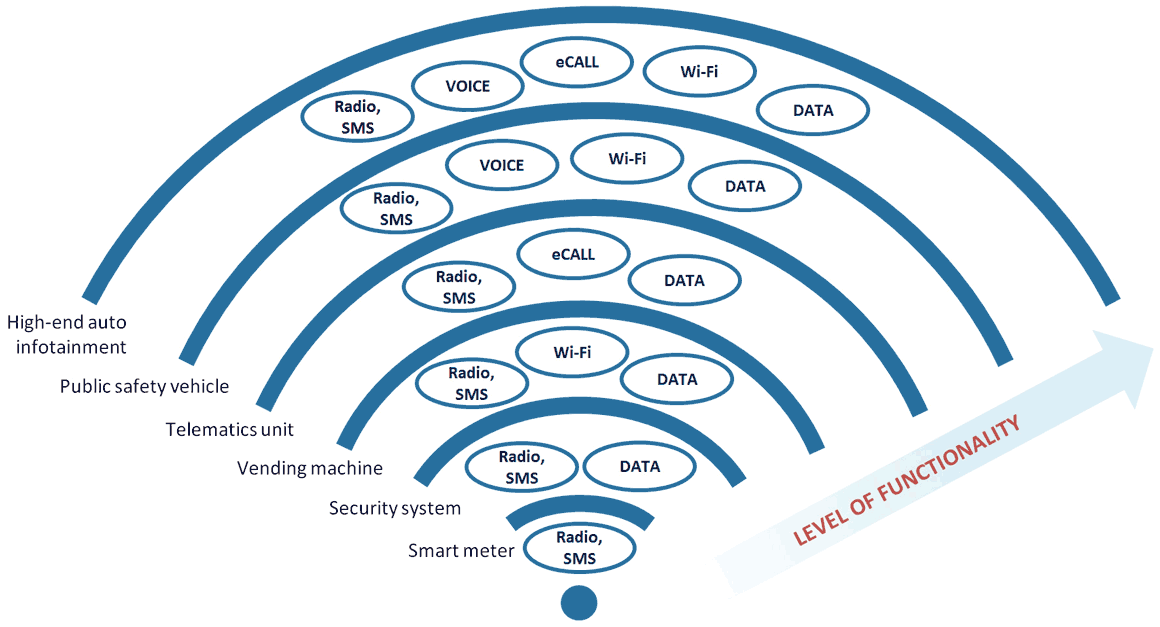 |
| Paul Leroux |
To complicate matters, modem technology for embedded systems is evolving quickly. Development teams need the freedom to upgrade to newer, more capable modems, without having to rewrite or redesign their applications. Likewise, they need the flexibility to choose the best modem for a particular region, product line, or price point.
Enter the QNX Wireless Framework, which QNX Software Systems released last week. Designed to simplify system design, the framework encapsulates the complexities of modem control through an easy-to-use application programming interface (API). Moreover, the API remains consistent across wireless modules and chipsets, allowing systems to quickly support new cellular or Wi-Fi products from vendors such as Gemalto, Sierra Wireless, Telit Wireless Solutions, and u-blox.
 |
| The QNX Wireless Framework can scale to meet a broad range of product requirements. |
The QNX Wireless Framework is built on technology already deployed in millions of BlackBerry devices, supported by hundreds of mobile carriers, and field-proven in complex wireless environments. Better yet, it's backed by a dedicated, world-class team of wireless experts with hundreds of person-years of experience building carrier-grade mobile products.
To learn more about the QNX Wireless framework:
- read the press release
- read the product overview and product brief
- download the webinar on applying smartphone wireless technology to connected embedded systems

No comments:
Post a Comment